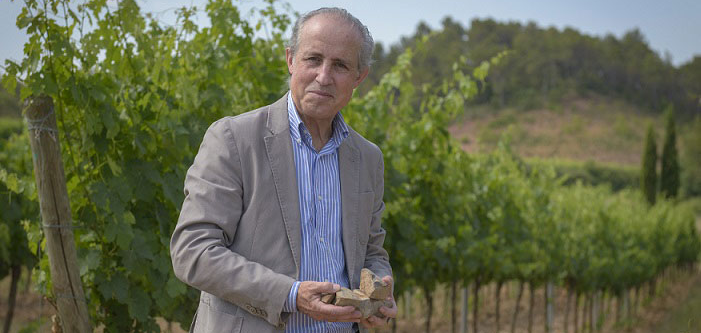"Barcelona needs to position itself as the capital of a wine country"
Valentí Roqueta, president of the Associació Vinícola Catalana since 2014, believes that Barcelona's significant international reputation, largely the result of tourism, can help to raise the profile of the quality, personality and diversity of Catalan wines even further. To Roqueta, wine tourism is the best way for visitors to explore the countryside and the "beautiful landscapes to be found in our country".

30-10-2018 | Interviews
Valentí Roqueta
President of the Associació Vinícola Catalana
"Barcelona needs to become the 'kilometre zero' of wine-producing Catalonia and the wine routes", he says excitedly, influenced by the legacy of the monumental and historical Masia Roqueta, in Santa Maria d'Horta d'Avinyó in the Bages region. Born into a family connected to this world since the 12th century, he believes that as wine and food products trigger an interest and curiosity about a culture and about the contribution made by these areas that can only be satisfied by "living it", they are immune to the uniformity of the digital world.
Roqueta believes that Barcelona needs to position itself "as the capital of a wine country". "It is a fact -he adds- that in Catalonia we have some of the best wine tourism offering in the world, comparable to Napa Valley (United States) or Bordeaux or Alsace (France)". "For example, less than one hour from the city of Barcelona there are 300 wineries, and within two hours, 600". Roqueta took over management of the family wine production group in 1982, and in 1983 set up the Abadal winery, undertaking to create wines expressing the unique nature of the land and raising its profile. Its wines can now be found in over 40 countries.
Wine is closely linked to food and, in her opinion, is fundamental in promoting Catalonia's gastronomic offerings, "as a maximum cultural expression of the country". Wine lists and menus should be consistent and balanced, because they represent the restaurant's image and gastronomic offerings. "The figure of the sommelier is extremely important, because they transmit the culture of wine", he tells us.







